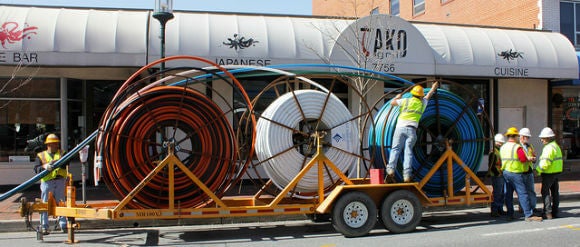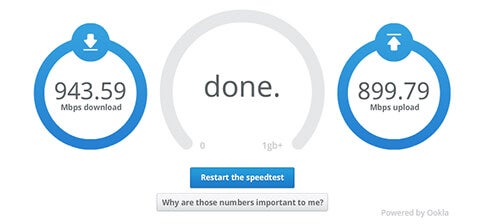If you suffer from Google Fiber envy, which delivers close to gigabit speeds, there’s good news: you don’t have to move to Kansas anymore.
It was only last November when Google Fiber launched in Kansas City at a cost of about $100 million to the envy of many Americans suffering with slow connections (the US ranks 16th in the world in broadband speeds). Just after announcing that the service will roll out to more homes in the metropolitan area at a cost of $84 million for infrastructure, the company has announced that it will be expanding its network next year to the “City Of The Violet Crown”, otherwise known as Austin, Texas.
But for those anxious to get the service, it’s going to be a long wait. Analysts estimate that for Google to upgrade the 20 million homes in the US with its network, the cost would be around $11 billion, and that’s just to be considered to be a viable medium-sized competitor to the big telecoms. Looks like the company will continue to hand pick cities that are willing to cooperate with bringing the service in.
Speaking of which, the telecoms aren’t taking Google’s expansion into the cities in the middle of the country lying down. After complaining that Google received an unfair advantage by Kansas City to install Fiber there, Time Warner Cable reportedly gave some customers in the area better speeds for less money even as the company released a statement trying to convince everyone that customers aren’t really demanding gigabit Internet.
And now AT&T has announced it will build its own fiber-based 1Gpbs network in Austin to directly compete with Google.
The problem for telecoms is that a slew of Google Fiber customers have posted screenshots around the web showing off their lightning fast Internet speeds to the envy of us all. Furthermore, Netflix recently released ISP rankings for fastest streaming speeds and Google snatched the top spot by a significant margin. All of this attention means that the demand for fiberoptic networks is increasing and fast.
Although Google’s reputation among the tech crowd is far better that the traditional telecoms, the current state of broadband in the US means that consumers will benefit from fiberoptic service, regardless of who actually delivers it. It’s easy to love to hate telecoms for throttling broadband and being slow to upgrade networks, even as Google uses this to its advantage. But Americans will benefit from any upgrade to the Internet infrastructure at this point.
Many continue to study and speculate about Google’s every move with the service rollout, in an effort to gauge just how disruptive the company can be in a well-established club. For consumers who have eagerly bought numerous mobile devices, swiped their credit cards for the biggest flatscreen TVs that can fit in their homes, and signed up for digital distribution of music, TV, and movies, gigabit speeds are now the stuff dreams are made of.
[image: woodleywonderworks, UCFFool/Flickr]





